After more than six years of implementing Decree 98/2018/ND-CP on policies to encourage the development of cooperation and association in the production and consumption of agricultural products, the policies to encourage cooperation and association in the production and consumption of agricultural products have created a clear impact, but also revealed many limitations in support mechanisms, implementation procedures and the ability to adapt to the new context. In the coming period, the amendment and completion of Decree 98/2018/ND-CP need to be oriented towards the spirit of innovative thinking, institutional flexibility, digitalization in governance and association with green development and low emissions.
Paving the way for a green, modern supply chain
First of all , it is necessary to shift the focus from "input support" to "output-based aid" (OBA). The current mechanism mainly provides funding based on project documents, while many linkages are actually not qualified due to lack of project development capacity. The new policy needs to support based on "actual output", that is, when the linkage chain demonstrates specific results such as: guaranteed output reaching over 70%, having traceability, achieving technical standards certification (VietGAP, GlobalGAP, SRP, organic) and demonstrating added value or emission reduction, then a part of the initial investment cost will be reimbursed. This mechanism both creates motivation to maintain substantive linkages and ensures that the state budget is used effectively, transparently and fairly.
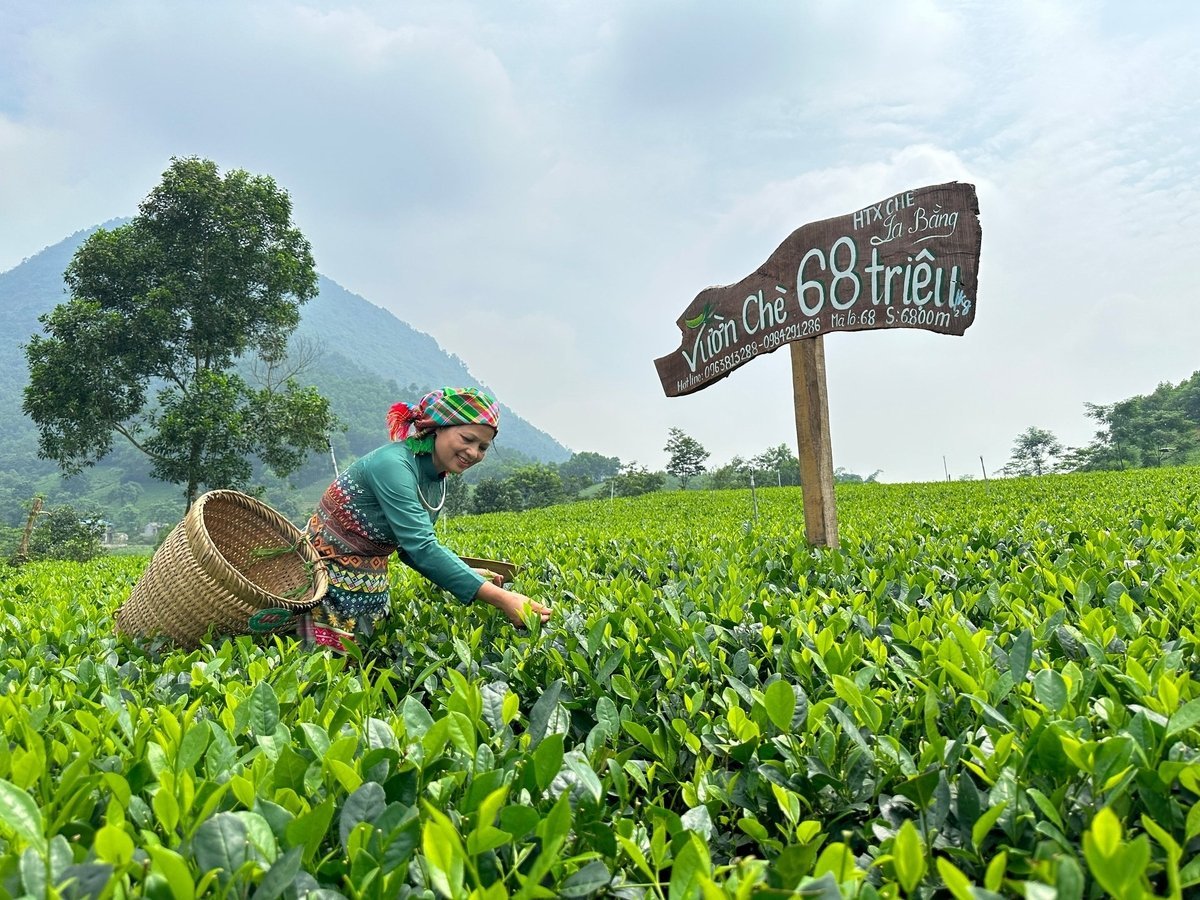
The new policy will support the supply chain to ensure traceability and meet technical standards. Photo: Quang Linh.
Second, it is necessary to build a national digital platform for agricultural linkages, considering it an essential management infrastructure in the digital transformation period. This platform will integrate data on contracts, raw material areas, growing area codes, traceability, carbon emissions and value chain efficiency. Thereby, businesses, cooperatives, farmers and management agencies can access, compare, and demonstrate the transparency of linkages. This is a prerequisite for Vietnam to move towards “single-window digital management” of agricultural value chains, as well as participate in international trade, carbon credits and high-end export markets.
Third, agricultural linkages need to be closely linked to the goals of green transformation, low emissions and carbon trading. Linkages must not only be economic , but also meet environmental standards – efficient resource use, straw management, limited burning, and greenhouse gas emissions reduction. Support policies should encourage production models with measurement – reporting – verification (MRV), organic and circular production and the ability to accumulate carbon credits for voluntary trading. The State needs to have technical guidance and a pilot mechanism for “low carbon value chains” to gradually form an agricultural carbon market.
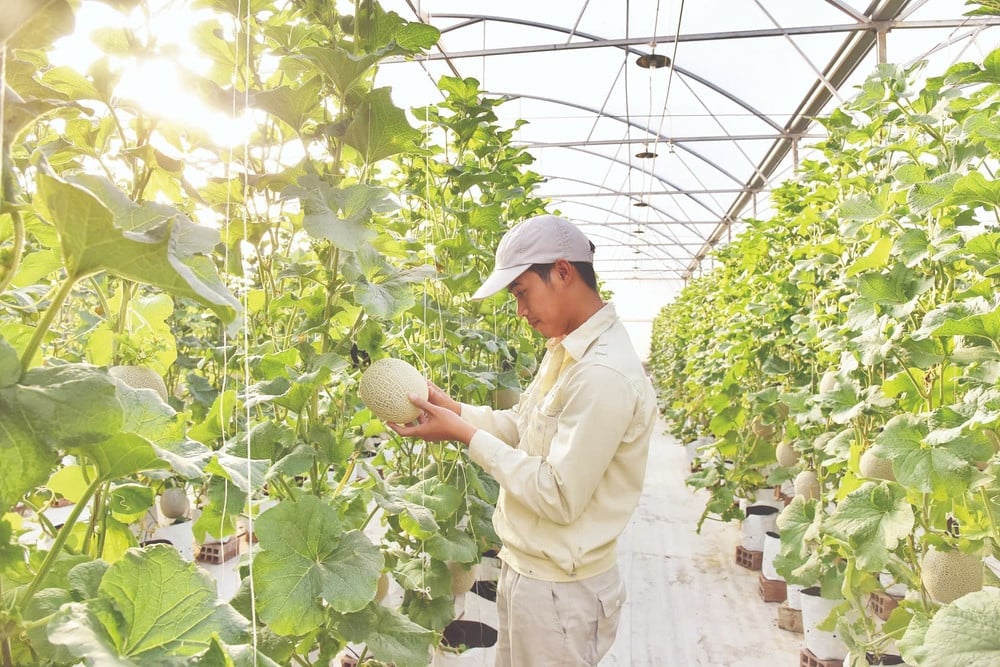
Investing in research is a solution to improve the capacity of the inter-operational system. Photo: Dang Anh.
Fourth, it is necessary to establish a professional consulting ecosystem that acts as a bridge between policy - business - cooperative - market. In the context that most cooperatives and small enterprises are still weak in planning capacity, contract management, traceability and process standardization, the State needs to order consulting organizations, research institutes, universities and agricultural service enterprises to provide consulting services, training and support for planning linkages. This is a solution of "investing in capacity" instead of "short-term support", helping the linkage system operate more practically and autonomously.
4 key areas of innovation
The focus of amending Decree 98 should be on simplifying procedures, increasing transparency and encouraging linkages along sustainable value chains.
First of all, it is necessary to amend Article 4 (Linkage content) to expand the content of the link not only limited to “supply - production - consumption”, but also include new elements such as: electronic traceability, technical standards (VietGAP, SRP, organic), straw management, measurement and sharing of carbon credits. At the same time, it is necessary to stipulate that the linked parties must have a commitment to share risks, a mechanism to adjust prices when the market fluctuates and a method of dispute resolution.
Article 5 (Support conditions) should be adjusted from “having a written contract with confirmation from the government” to the mechanism of “publishing the contract and taking legal responsibility”, allowing the use of electronic contracts with digital signatures, stored on a digital platform instead of paper copies. This will both reduce administrative procedures and promote autonomy and responsibility of parties in the chain.
Regarding support policies (Articles 6-9), it is necessary to add some new contents, including: support for electronic traceability, MRV emission measurement, digital management platform, e-commerce, agricultural insurance and chain risk sharing. In particular, in Articles 7 and 8, it is necessary to officially add an Output-Based Aid mechanism, allowing a maximum refund of 30% of the initial investment cost if the linkage meets the criteria on consumption, standards and traceability. This mechanism is specified in detail in Article 7 (amended) and Article 8 (supplemented) in the draft Decree amendment. In addition, Article 7a (new) on “Developing a joint consulting ecosystem” should be added, clearly defining the responsibility of the Ministry of Agriculture and Environment in publishing a list of qualified consulting organizations, providing technical support toolkits (plan templates, sample contracts, traceability instructions, electronic contracts), and a mechanism for co-payment of consulting costs between the budget and enterprises/cooperatives.
Along with that, the policy needs to establish a set of indicators to evaluate sustainable linkage chains as a basis for support stratification, including: standardization level, traceability rate, contracted output, emission reduction level, and farmer income efficiency. Linked chains that meet high standards, export or low emissions should enjoy higher incentives.

Data infrastructure is the core foundation for implementing modern connectivity. Photo: Business Magazine.
In addition, it is necessary to build a national digital platform for agricultural value chains, connecting all cooperatives, enterprises, management agencies and banks. This system integrates databases: raw material areas, growing area codes, contracts, output, traceability, emission index and certification information.
Localities are encouraged to set up regional data portals that connect directly to the central system, serving real-time management. This is not only a technical tool but also a mandatory condition to enjoy support policies, similar to Thailand's TraceThai traceability model or China's digital agricultural database.
In addition, it is necessary to clearly define the responsibility of the Department of Agriculture and Environment in synchronizing raw material area data with other programs such as OCOP, Decree 45/2021 on raw material areas, Decision 1088/QD-BNN-KTHT and the Project of 1 million hectares of high-quality, low-emission rice in the Mekong Delta region.
In terms of human resources and organization, developing agricultural linkages requires chain management capacity, legal skills, finance and digital technology. Therefore, it is necessary to implement a training program and certify chain management capacity for cooperative staff, enterprises, agricultural extension organizations and local management agencies. Training content must include: skills in linkage planning, electronic contract management, price negotiation, data retrieval and use of digital platforms.
At the same time, we should continue to support organizations, individuals, and working groups to provide consulting and support regional linkages, operating under the public-private partnership (PPP) model, to connect cooperatives - enterprises - banks - institutes and schools. These centers are responsible for providing technical support, providing consulting services, monitoring contracts, and promoting key linkage models.
In terms of finance and investment, it is necessary to apply the public-private co-investment mechanism (PPP) in developing raw material infrastructure, giving priority to projects with value chain linkages and export standards. The state budget should support part of the capital for light infrastructure investment (intra-field roads, storage warehouses, cold logistics, drying stations, biological by-product treatment systems), while enterprises and cooperatives invest in production and processing. In addition, it is necessary to expand value chain credit, allowing banks to provide capital based on linkage contracts and traceability data instead of collateral, combined with a linkage credit guarantee mechanism similar to the Malaysian model. The state can support interest rates or guarantee 30-50% of loans for qualified linkage chains.
In addition, it is necessary to strongly implement agricultural insurance and chain risk sharing funds to minimize losses caused by natural disasters, epidemics, and price fluctuations. Linked chains with offtake contracts, applying technical standards or low-emission production should be prioritized for insurance support or fund participation fee support.
Agricultural linkage in the new period is not just a contract between parties, but must become a sustainable cooperative ecosystem, where data, trust and responsibility are quantified. At that time, the State will not only "support" but also become the mechanism creator, while enterprises, cooperatives and farmers are the subjects co-creating new values for Vietnam's agriculture.
Source: https://nongnghiepmoitruong.vn/sua-nghi-dinh-98-2018-nd-cp-gan-ket-voi-phat-trien-xanh-phat-thai-thap-d783455.html


![[Photo] Chu Noodles - the essence of rice and sunshine](https://vphoto.vietnam.vn/thumb/1200x675/vietnam/resource/IMAGE/2025/11/11/1762846220477_ndo_tl_7-jpg.webp)
![[Photo] Prime Minister Pham Minh Chinh receives Lao Minister of Labor and Welfare Phosay Sayasone](https://vphoto.vietnam.vn/thumb/1200x675/vietnam/resource/IMAGE/2025/11/11/1762872028311_dsc-2246-jpg.webp)








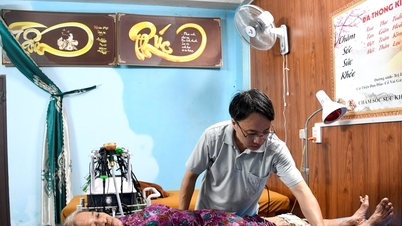



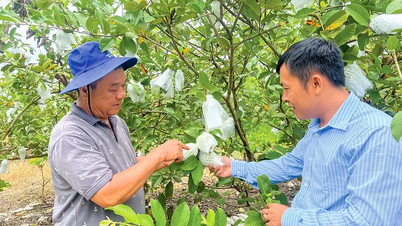

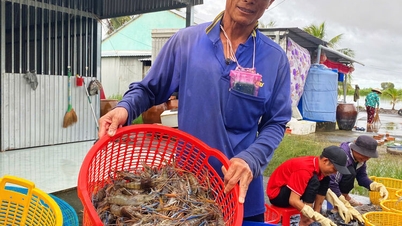





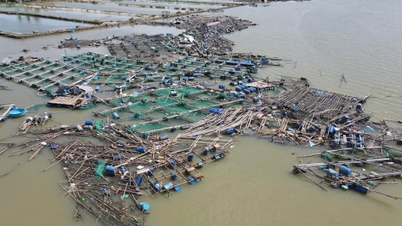
![Dong Nai OCOP transformation: [Article 4] Reaching national standard products](https://vphoto.vietnam.vn/thumb/402x226/vietnam/resource/IMAGE/2025/11/11/1762825820379_4702-cac-san-pham-trai-cay-chung-nhan-ocop-nongnghiep-174649.jpeg)








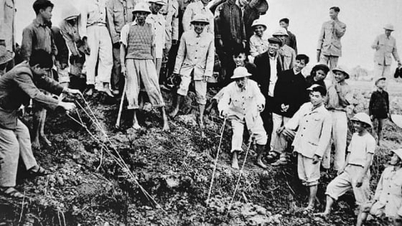




























































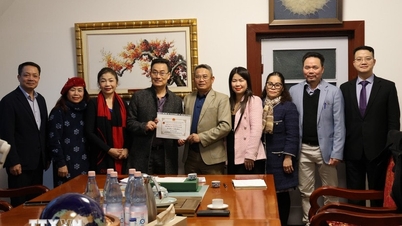






![Dong Nai OCOP transition: [Article 3] Linking tourism with OCOP product consumption](https://vphoto.vietnam.vn/thumb/402x226/vietnam/resource/IMAGE/2025/11/10/1762739199309_1324-2740-7_n-162543_981.jpeg)







Comment (0)